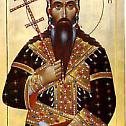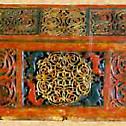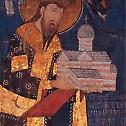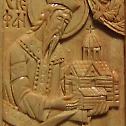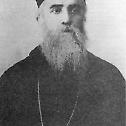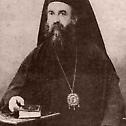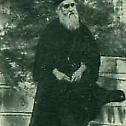The legion of saints of the Church is comprised of men of extraordinary ability whose talents may have been dissimilar but many of whom seem to have shared a common genius for oratory. Yet out of this vast assembly of eloquent speakers, whose reputation might have rested on their gift of expression alone, the one for whom the title "Chrysostom" (in Russian, "Zlatoust"), or "golden-mouthed" was reserved, was John of Antioch, known as St. John Chrysostom, a great distinction in view of the qualifications of so many others.
Theology
Holy All-Praised Apostle Philip
27. November 2018 - 16:35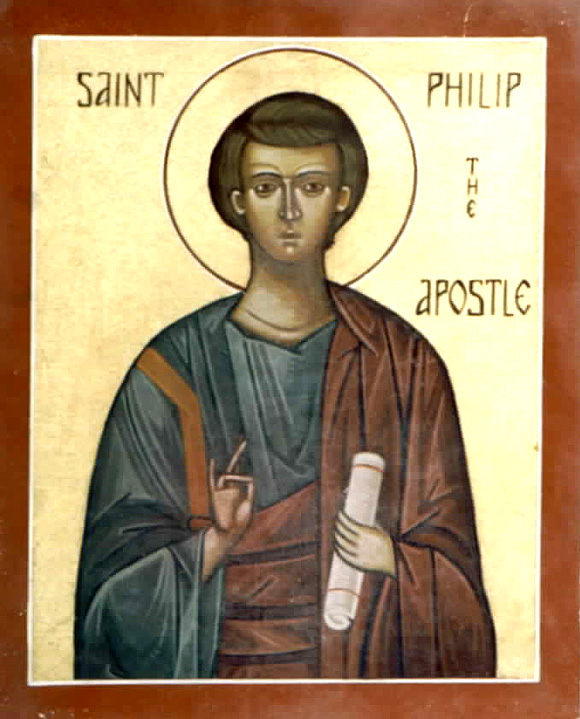 The Holy and All-praised Apostle Philip was a native of the city of Bethsaida in Galilee. He had a profound depth of knowledge of the Holy Scripture, and rightly discerning the meaning of the Old Testament prophecies, he awaited the coming of the Messiah. Through the call of the Savior (John 1:43), Philip followed Him. The Apostle Philip is spoken about several times in the Holy Gospel: he brought to Christ the Apostle Nathaniel (i.e. Bartholomew, April 22, June 30, and August 25. See John. 1:46). The Lord asks him where to buy bread for five thousand men (John. 6: 5-7). He brought certain of the Hellenized Jews wanting to see Jesus (John. 12:21-22); and finally, at the Last Supper he asked Christ to show them the Father (John. 14:8).
The Holy and All-praised Apostle Philip was a native of the city of Bethsaida in Galilee. He had a profound depth of knowledge of the Holy Scripture, and rightly discerning the meaning of the Old Testament prophecies, he awaited the coming of the Messiah. Through the call of the Savior (John 1:43), Philip followed Him. The Apostle Philip is spoken about several times in the Holy Gospel: he brought to Christ the Apostle Nathaniel (i.e. Bartholomew, April 22, June 30, and August 25. See John. 1:46). The Lord asks him where to buy bread for five thousand men (John. 6: 5-7). He brought certain of the Hellenized Jews wanting to see Jesus (John. 12:21-22); and finally, at the Last Supper he asked Christ to show them the Father (John. 14:8).
St. John the Merciful, Patriarch of Alexandria
25. November 2018 - 22:27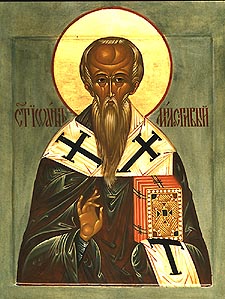 Saint John the Merciful, Patriarch of Alexandria, was born on Cyprus in the seventh century into the family of the illustrious dignitary Epiphanius. At the wish of his parents he entered into marriage and had children. When the wife and the children of the saint died, he became a monk. He was zealous in fasting and prayer, and had great love for those around him.
Saint John the Merciful, Patriarch of Alexandria, was born on Cyprus in the seventh century into the family of the illustrious dignitary Epiphanius. At the wish of his parents he entered into marriage and had children. When the wife and the children of the saint died, he became a monk. He was zealous in fasting and prayer, and had great love for those around him.
His spiritual exploits won him honor among men, and even the emperor revered him. When the Patriarchal throne of Alexandria fell vacant, the emperor Heraclius and all the clergy begged Saint John to occupy the Patriarchal throne.
The saint worthily assumed his archpastoral service, concerning himself with the moral and dogmatic welfare of his flock. As patriarch he denounced every soul-destroying heresy, and drove out from Alexandria the Monophysite Phyllonos of Antioch.
The Life of Saint John Chrysostom
25. November 2018 - 22:26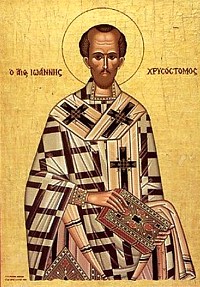 Commemorated November 13/26
Commemorated November 13/26
Our Father Among the Saints, John Chrysostom
The Life of St. King Stephen of Decani
23. November 2018 - 14:33St. King Stephen of Decani is one of the best known Saints of the
Serbian Orthodox Church. Through his holy and incorruptible relics God has performed numerous miracles.
Today, as the Serbian people suffer through another turbulent chapter in their history, they would do well to bring to mind the exemplary character of their martyred King Stephen Uros III (Decanski).
The Life of St. Nectarios
22. November 2018 - 10:41His Childhood Years
Anastasios Kephalas, son of Dimosthenis and Vassiliki, was born on October 1st, 1846, in Eastern Selyvria of Thrace (Now Turkey). He was one of six children. His parents were very poor but pious Christians who brought up their children according to the teachings of our Church. When his mother taught him Psalm 50, he liked to repeat the verse: I shall teach thy ways unto the wicked and sinners shall be converted unto thee. His early years were spent at the local elementary school in Silivria. Upon completion of his school curriculum there were no schools in the area for him to continue his academic studies and he was too poor to study abroad. But he did have a thirst for knowledge and a love of God. This love urged him on for he wanted to become a theologian. He wanted to educate himself so that he could love the Lord even more, and as such, serve him better. Sadened by the state of poverty that his parents were in and urged by his ever-growing love for our Lord Jesus Christ, at the age of fourteen and with his parents’ blessings, Anastasios went to Constantinople to find work for their financial assistance and in hope that he would be able to continue his studies and fullfill his dreams.
Synaxis of the Archangel Michael and the Other Bodiless Powers
20. November 2018 - 15:39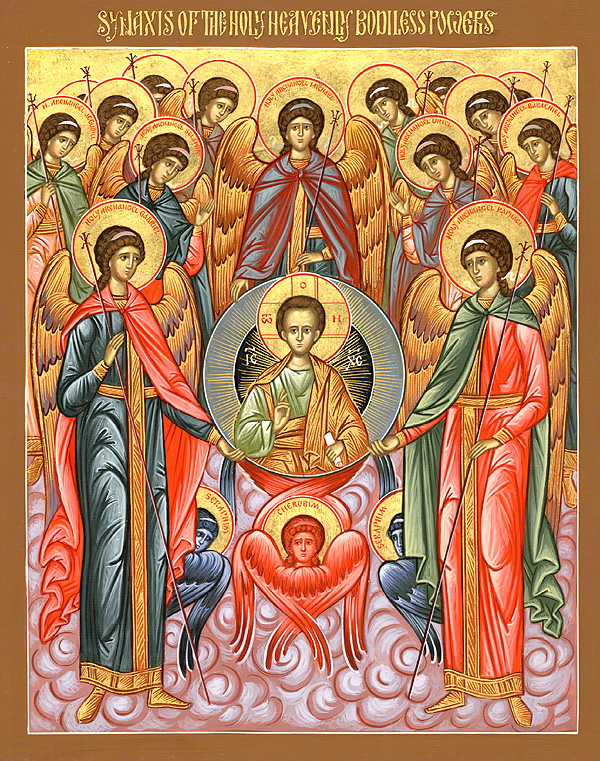 The Synaxis of the Chief of the Heavenly Hosts, Archangel Michael and the Other Heavenly Bodiless Powers: Archangels Gabriel, Raphael, Uriel, Selaphiel, Jehudiel, Barachiel, and Jeremiel was established at the beginning of the fourth century at the Council of Laodicea, which met several years before the First Ecumenical Council. The 35th Canon of the Council of Laodicea condemned and denounced as heretical the worship of angels as gods and rulers of the world, but affirmed their proper veneration.
The Synaxis of the Chief of the Heavenly Hosts, Archangel Michael and the Other Heavenly Bodiless Powers: Archangels Gabriel, Raphael, Uriel, Selaphiel, Jehudiel, Barachiel, and Jeremiel was established at the beginning of the fourth century at the Council of Laodicea, which met several years before the First Ecumenical Council. The 35th Canon of the Council of Laodicea condemned and denounced as heretical the worship of angels as gods and rulers of the world, but affirmed their proper veneration.
A Feast day was established in November, the ninth month after March (with which the year began in ancient times) since there are Nine Ranks of Angels. The eighth day of the month was chosen for the Synaxis of all the Bodiless Powers of Heaven since the Day of the Dread Last Judgment is called the Eighth Day by the holy Fathers. After the end of this age (characterized by its seven days of Creation) will come the Eighth Day, and then “the Son of Man shall come in His Glory and all the holy Angels with Him” (Mt. 25:31).

